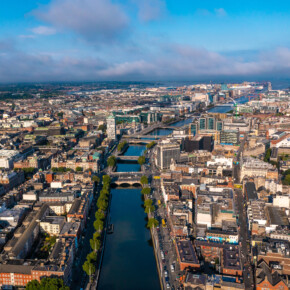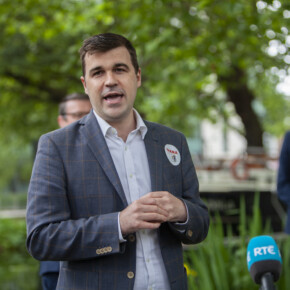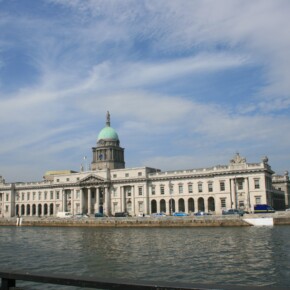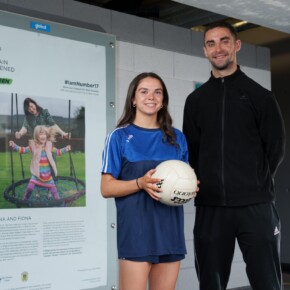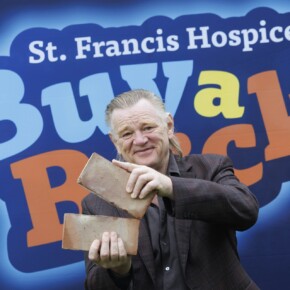Clontarf gears up for epic election showdown
Mike Finnerty 10 Jan 2024
Clontarf has boasted the highest turnout for Dublin City Council elections since 2004.
For the last four local elections, this constituency has seen the highest turnout among voters, with a turnout just shy of 68% in 2014.
2019’s vote saw a drop to 49.3%, yet it still had the highest voter turnout in Dublin by quite a comfortable margin.
Maybe the sea air has therapeutic properties that make voters really jazzed to vote in local elections.
When it comes to Clontarf, there is only one name in town; independent Councillor Damian O’Farrell.
Ever since he stormed home with over 20% of first preferences in 2009, O’Farrell became a mainstay of the Clontarf political scene but will not be running in June.
O’Farrell has been a fearless advocate for survivors of institutional abuse over the years, and his high personal popularity made him one of the safest seats on Dublin City Council.
O’Farrell not running has created something of a vacuum that candidates of all stripes will be keen to exploit.
The 18% of first preferences won by O’Farrell will be up for grabs by candidates from all across the spectrum.
Clontarf is one of the most socially conscious constituencies in the country and candidates with a background in fighting for disability rights are likely to be richly rewarded by constituents.
Barry Heneghan will be running as an independent and has received the backing of former local TD Finian McGrath in recent weeks as well as O’Farrell.
From an outsider glance, it appears Heneghan is looking to pick up from where O’Farrell left off.
Sinn Féin have proudly trumpeted they will be running multiple candidates in each constituency across Dublin this June, and Clontarf is no exception.
One of the candidates youthful Alyssa Ní Bhroin, who made a well-received speech at the recent party ardfheis about “the barbaric and cruel practice” of hare coursing.
Sinn Féin have also selected Paddy Moloney to run for the party, confirming that Sinn Féin are taking the locals deathly seriously.
Clontarf has always been a fairly weak area for Sinn Féin, only ever getting one candidate elected onto Dublin City Council from the area since the introduction of Dublin City Council.
That candidate was Ciarán O’Moore, who was elected in 2014 amid a surge for Sinn Féin at a local level before a poor showing in 2019 by the party saw O’Moore lose his seat.
Sinn Féin winning a seat in Clontarf would be a key part of the puzzle for the party in their bid to become the biggest party on Dublin City Council.
The biggest threat to Sinn Féin, ironically, comes from other parties of its ilk.
O’Moore went from 9% of the vote in 2014 to 3.6% of the vote in 2019, with People Before Profit’s Bernard Mulvany outpolling him.
Mulvany himself will be the name on the ballot again for People Before Profit, and Mulvany has been busy since the last time he faced the voters of Clontarf.
The disability advocate has developed a reputation for fighting for the rights of people with disabilities at a local level due to his involvement with Access For All, and was one of the most prominent activists that led to the controversial Green Paper on disability reform being scrapped.
Disability issues, in the context of a local election, have the ability to cut across party lines and 6-seaters tend to favour parties like People Before Profit.
All that to say, Mulvany winning a seat is not out of the question.
Last time out, he pulled in 4.8% of first preferences which is a decent starting point – for comparison, Catherine Stocker was elected with 6.8% of first preferences for the Social Democrats and proved transfer-friendly.
June will be a test of where People Before Profit pulls transfers from.
Clontarf is a true rainbow coalition of voters, with Fianna Fáil, Fine Gael, Green, Labour and the Social Democrats all voted in by residents last time.
Of the incumbents, Naoise Ó Muirí of Fine Gael will in all likelihood stroll home, as will Fianna Fáil’s Deirdre Heney, with both candidates serving on Dublin City Council since 2004.
Massive surges will be needed to unseat both candidates and in plain terms, that kind of surge rarely happens in local elections, least of all in Ireland.
Despite Fianna Fáil’s recent polling woes, the party has won a seat in Clontarf stretching all the way back to 1985, as have Fine Gael.
The idea of Fianna Fáil and Fine Gael not having a candidate elected in Clontarf is unthinkable, and should that happen, one may check the weather forecast for a falling sky.
The true entertainment in Clontarf will be seeing if the smaller left-of-centre parties, Labour, Social Democrats and the Greens, can take the last few seats.
Clontarf was the former haunt of Dublin Bay North TD Aodhán Ó Ríordáin who was elected in the constituency back in 2004.
In more recent times, the Labour man has been campaigning alongside candidate Ali Field.
Field was announced as the Labour candidate last summer, and from an outsider’s perspective, it is plain to see the party is expending a lot of resources in getting Field elected.
The constituency is fairly favourable towards Labour with Jane Horgan-Jones securing over 10% in first preferences in both of her election battles, but the trick will be overcoming Labour’s current polling woes to retain the seat.
Field has featured in this paper as an advocate for people with intellectual disabilities, and as we’ve outlined that appears to be something the voters of Clontarf deeply value.
Field is working off a decent chunk of votes won by Horgan-Jones in 2019, the question now is can she keep that 10% of votes or even expand it further
Green Councillor Donna Cooney was elected alongside O’Farrell on the first count in 2019, but that came amid the backdrop of a strong performance for the party nationwide that year.
Cooney scooped 14.4% of first preferences in 2019 for the party; even if her share of first preferences dropped to 7%, it’s theoretically enough to get her re-elected.
Cooney has been a vocal advocate of the need for flood protection for Clontarf, and considering her bona fides in the area Cooney should be re-elected albeit with a reduced majority.
Aontú have thrown their hat into the ring, with their Dublin Bay North representative James Morris standing for the party.
It is hard to ascertain how Aontú will perform as they didn’t run in the area in 2019, and their 2020 general election performance left a lot to be desired, but four years is plenty of time to build a following and spread their message to voters.
Whether Clontarf is receptive to Aontú’s brand of social conservatism is another question altogether.
Going by the results of the 2018 8th amendment referendum, Dublin Bay North voted for Repeal by nearly 75% to 25%.
To that end, Clontarf is the ideal battleground for a Social Democrats candidate.
Clontarf can be described as largely socially progressive, very politically engaged, and interested in how politics can work for them; in other words, Social Democrats mana.
The incumbent Catherine Stocker will be looking to secure a 2nd term on Dublin City Council, and as in 2019, transfers will be crucial in Stocker’s re-election bid.
Stocker pulled off something of a coup in 2019, denying both Fianna Fáil and Fine Gael a 2nd seat thanks to her strong performance on transfers.
Stocker’s vote was just shy of 7%, below Charles Haughey’s grandson Cathal and Fine Gael’s Jeff Johnston, yet transfers were enough for her to get her over the line.
With a grown media profile and the confidence that comes with facing re-election, it would be unwise to bet against Stocker securing re-election.
The constituency of Clontarf is as good as it gets for political geeks; strong incumbent candidates mean that the battle for the last few seats will require every single drop of blood, sweat, and tears from candidates and their army of volunteers to get them elected.
And who said that local politics was boring?


